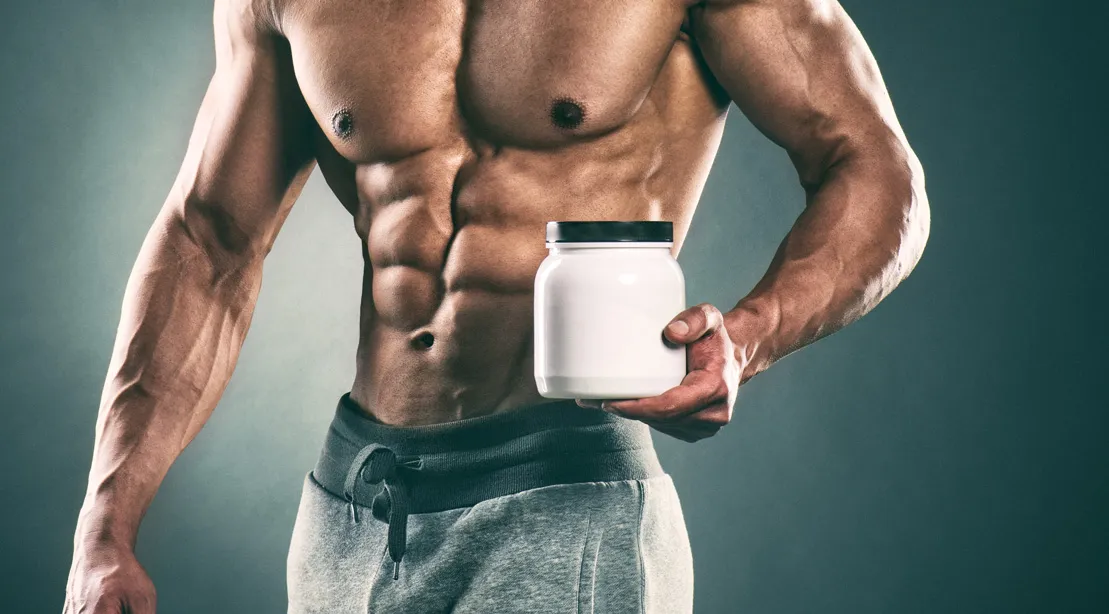Creatine Explained: What It Is and Why You Might Need It
Creatine is one of the most researched and effective supplements in the fitness world. It's known for improving strength, supporting muscle growth, and boosting exercise performance.

Creatine is one of the most researched and effective supplements in the fitness world. It's known for improving strength, supporting muscle growth, and boosting exercise performance. Whether you’re a beginner or a seasoned athlete, creatine can play a powerful role in your progress—if you understand how to use it properly.
This guide breaks down what creatine is, how it works, who it’s for, and why it remains one of the top supplements in sports nutrition.
What Is Creatine?
Creatine is a natural compound found in your muscles. It's made up of three amino acids: arginine, glycine, and methionine. Your body produces some creatine naturally, and you also get small amounts from protein-rich foods like meat and fish.
Supplementing with creatine increases your muscles’ stored energy, allowing you to work harder and recover faster during high-intensity workouts.
How Does Creatine Work?
Creatine helps regenerate adenosine triphosphate (ATP), your body’s main energy source for short bursts of explosive activity—like sprinting, lifting weights, or jumping.
In simple terms:
- More creatine = More ATP
- More ATP = More strength and power during workouts
It doesn't directly burn fat or build muscle on its own, but it enables you to train harder, which indirectly supports both.
Benefits of Creatine Supplementation
1. Increased Strength and Power
Creatine is best known for boosting power output in resistance training. Studies consistently show noticeable improvements in one-rep maxes, explosive movements, and sprint performance.
2. Supports Muscle Growth
By increasing workout intensity and volume, creatine indirectly supports muscle hypertrophy. It also draws water into the muscle cells, giving muscles a fuller appearance.
3. Enhanced Recovery
Creatine may reduce muscle cell damage and inflammation post-workout, speeding up the recovery process.
4. Better High-Intensity Performance
Perfect for activities like HIIT, weightlifting, CrossFit, and short sprints where quick bursts of energy are needed.
5. Cognitive and Brain Health Support
Emerging research shows creatine may support brain function, particularly in tasks requiring short-term memory or quick thinking.
Who Should Take Creatine?
Creatine is safe and effective for:
- Weightlifters and power athletes
- Sprinters and high-intensity performers
- Beginners looking to improve workout quality
- Vegetarians/vegans (lower natural intake from diet)
- Older adults for muscle and cognitive support
It’s not just for bodybuilders—anyone with strength or performance goals can benefit from it.
Types of Creatine
1. Creatine Monohydrate
The most studied, affordable, and effective form. It’s the gold standard for a reason.
2. Creatine HCL
More soluble in water; may reduce bloating for some users. Still needs more research compared to monohydrate.
3. Buffered or Micronized Creatine
Slightly altered forms for improved digestion, though benefits are usually similar to monohydrate.
Recommendation: Stick with creatine monohydrate unless you’ve had digestive issues with it.
How to Use Creatine
Loading Phase (Optional)
- 20 grams per day (split into 4 doses) for 5–7 days
- Quickly saturates muscle stores
Maintenance Phase
- 3–5 grams per day
- Take daily with or without food
Timing Tip: Creatine timing isn’t critical. Take it consistently—after your workout or with a meal is ideal.
Common Myths About Creatine
“Creatine causes water retention.”
True—but it's intracellular (inside muscle cells), not bloating.
“It’s bad for your kidneys.”
No evidence supports this in healthy individuals using the recommended dose.
“It only works for men.”
Creatine benefits everyone—men, women, athletes, and even older adults.
“You need to cycle off it.”
Not necessary. Daily use is safe long-term with proper hydration.
What to Expect
Week 1–2: Increased energy and performance during high-intensity efforts
Week 3–4: Slight increase in muscle fullness and workout endurance
Ongoing: Improved strength, faster recovery, and better training quality
Final Thoughts
Creatine is one of the few supplements that lives up to the hype. It’s affordable, safe, and backed by hundreds of studies proving its performance-enhancing effects. Whether your goal is to lift heavier, sprint faster, or recover quicker, creatine can give you the edge you need—without side effects when used correctly.
Make it a daily habit, stay hydrated, and let the results speak for themselves.